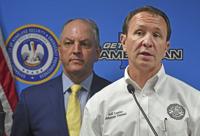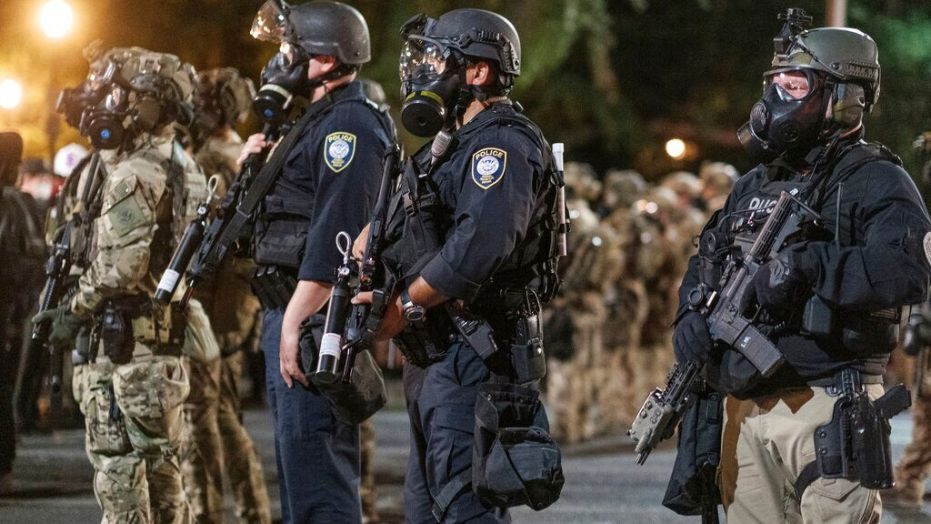A federal judge was left with little choice Tuesday but to adjourn early for the day in hearing a lawsuit that will ultimately decide how widespread mail ballots will be used in the Nov. 3 presidential election in Louisiana.
After U.S. District Judge Shelley Dick, of Baton Rouge, decided several motions, the parties noted that most testimony is on paper so few witnesses would need to be questioned live, leading Dick to adjourn.
Dick voiced frustration that the rest of Tuesday would be wasted after setting aside a full day for hearing Harding v. Edwards. Expert witnesses for both sides will be cross-examined when the hearing resumes Wednesday.
“We will convene at 10 a.m., and somebody better be testifying,” Dick said.
The lawsuit argues that voters, particularly those with underlying conditions or caretakers, have to choose between their health and participating in the election. It was filed by Jennifer Harding, a 42-year-old community organizer who cares for a fifth grader and two elderly family members; another voter; the Louisiana chapter of the NAACP; and the Power Coalition for Equity and Justice.
The plaintiffs want the court to forbid Secretary of State Kyle Ardoin from using his latest emergency plan, which limits who can vote by absentee mail ballot to those already covered by state law, such people 65 years and older, plus voters who test positive for COVID-19 in the two weeks between the start of early voting and Election Day.
+2

Jeff Landry and John Bel Edwards on same side in elections case but oppose each other
Officially Democratic Gov. John Bel Edwards and Republican Attorney General Jeff Landry are both defendants in a federal lawsuit challenging t…
Democratic Gov. John Bel Edwards, though named as the primary defendant, filed a brief agreeing with the plaintiffs and asking Dick to reinstate the emergency plan used during the July-August primaries, which allowed voters to seek an absentee ballot if they were at a higher risk of severe illness from COVID-19 because of underlying medical conditions; were subject to a quarantine order; were experiencing symptoms of COVID-19 and seeking medical confirmation; or were caring for someone who was isolated because of the disease.
Dick refused to realign the parties given Edwards siding with the Harding plaintiffs.
The kinds of questions Edwards’ side can ask and the way those questions are asked differs depending on the whether the governor is considered a defendant or plaintiff.
Without Edwards on the same side, Attorney General Jeff Landry, representing the state, was joined by Ardoin in arguing that the law doesn’t guarantee absentee balloting and requires only that the state doesn’t prohibit voters from participating. The pandemic wasn’t caused by Louisiana and the emergency election plan allows all voters to participate, they argued.
Handling arguments for the Harding plaintiffs is Robert D. Fram, senior counsel for the Covington & Burling law firm in San Francisco. His practice focuses on voting rights law.
Arguing for Landry and Ardoin was Phillip M. Gordon, who specializes in election-related litigation for the Holtzman Vogel Josefiak Torchinsky law firm based in Warrenton, Virginia; and Washington, D.C.
Matthew Block, the executive counsel for Gov. John Bel Edwards, is handling the governor’s case in court.
Dick also ruled that she would decide later whether Landry’s Sept. 1 opinion would have any bearing on the case.
Landry opined that state law already provides an avenue for a voter with underlying conditions made more dangerous if infected by COVID-19 to receive an absentee mail ballot. They could apply for the state disability program, which requires certification of the voter’s disability by a physician.
Gordon pointed out that the state’s disability program has been in law for decades and has never been challenged.
Fram countered that Landry’s opinion was an eleventh-hour maneuver to undermine the position that voters with such conditions need an alternative way to vote. He pointed out that requiring voters to obtain a statement from their doctor essentially requires a voter to pay for a doctor’s visit — either through a deductible or copay — and that violates laws forbidding voters from having to pay for the privilege of casting a ballot.
“The Court is inclined with agree with the plaintiff that in doing so, this imposes a monetary burden,” Dick said, but she postponed her ruling until later.

